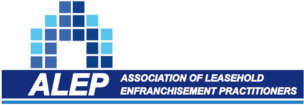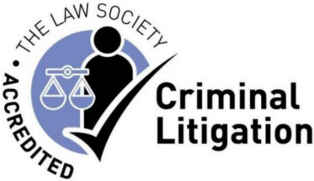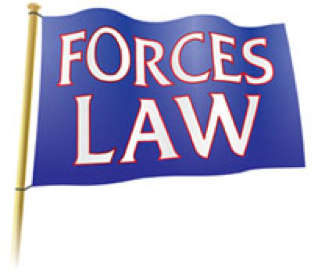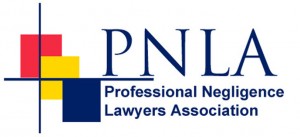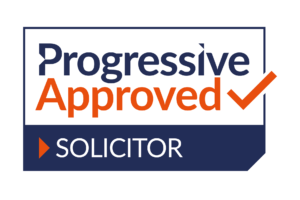Our Specialist Probate Solicitors Can Help You 
WHAT IS PROBATE?
When someone passes on, all of their property (and their debts) have to be collected in and valued – that forms what is known as their “estate”. Probate is the process of collection, distribution and payment of appropriate taxes on the estate.
The estate property is then distributed according to the will – although if there is no will, the property passes under what is known as the intestacy rules.
Our highly experienced Probate team handle estate administration throughout Wiltshire from our offices in Salisbury and Amesbury.
Looking for help with probate? Call our experienced lawyers on FREEPHONE 0800 1404544, Salisbury 01722 422300 or Amesbury 01980 622992 for FREE initial phone advice – with no strings attached
Click here to read about what our clients say about us – our Wills and Probate Lawyers Reviews
OUR PROBATE SERVICE – AS MUCH OR AS LITTLE HELP AS YOU NEED
Our solicitors understand that many executors appointed under the will don’t want to have to deal with probate – either it’s too much bother, they’re worried about the risks of getting it wrong or they are simply too upset following the loss of a loved one.
However we equally appreciate that others are prepared to deal with the estate administration themselves – and there is third group who want to retain control of the overall probate process – but feel they need help and advice on individual issues from time to time.
Here at Wiltshire law firm, Bonallack & Bishop, we offer a very flexible probate and estate administration service for clients throughout Wiltshire and further afield.
In short we can give you as much or as little assistance as you feel you need – either helping and advising you to complete the probate process yourself, or taking over administration of the full estate ourselves.
HOW OUR SPECIALIST PROBATE SOLICITORS CAN HELP YOU
Our team:
- Provide FREE initial phone advice.
- Remove the risk involved in being an executor – sadly these days contested probate is becoming more common – and this includes increasing cases of executors themselves being sued. Don’t put yourself at risk – leave your loved one’s estate in the hands of our specialist probate solicitors.
- If there is one or more properties in the estate that need to be sold, our specialist conveyancing solicitors provide a seamless online service alongside their probate colleagues – and you still don’t need to come into the office.
6 SIMPLE STEPS TO PROBATE
When a loved one dies, it is an extremely stressful time. In addition to this, it can also be complicated to make the necessary arrangements such as registering their death and organising the funeral.
You don’t have to deal with the deceased’s estate immediately.
We hope the following simple probate summary helps:
1. Register the death
The deceased’s GP or the doctor at the hospital will give you a medical certificate which outlines the cause of death if it was natural and known. Then you need to take the certificate to the local registry office, which you can find in the phone book or on direct.gov.uk. You will then receive two documents from the registrar: a Certificate for Burial or Cremation (“Green Form”) and, if the deceased received a pension or state benefits, they will get a Certificate of Registration of Death (form BD8). You can buy copies of the death certificate from your Local Authority; prices vary depending on the Local Authority.
2. Make funeral arrangements
You can play an active part in the funeral arrangements, or you can get a funeral director to arrange almost everything. If you are unsure of which funeral director to use, ask family and friends or look into a respectable funeral association such as the National Association of Funeral Directors. We are also more than happy to recommend local funeral directors we trust and work with regularly.
Contrary to popular belief, you do not have to wait until the death is registered to contact the funeral director. Your funeral director can make all of the necessary arrangements for the deceased’s funeral. They can arrange the cremation or the burial and the type of service you decide to have.
3. Inform all the necessary people
Speak to the deceased’s banks and building societies to take the appropriate action with bank accounts. Speak to DWP (the Department for Work and Pensions), they will be able to tell you if there are any benefit entitlements for the surviving spouse; and may even be able to contribute to funeral costs.
If the house is now unoccupied you must let the insurance company know. They may have additional requirements that must be satisfied if the insurance is not to be invalidated.
4. Contact the executor of the Will
If there is a Will, find out who the executor is and contact them. It is the job of the executor to distribute the deceased’s estate. In the absence of a Will, the distribution of the estate is dictated by the laws of intestacy. This means that the surviving spouse, civil partner or close relative will become responsible for the estate.
Click here to learn more about the duties of an executor
5. Handling Probate
Obtaining probate may not be necessary if the value of the deceased’s personal estate (i.e. solely in their name) is low. You have two options, either the executor of the estate can do this themselves, or you can hire specialist Probate solicitors to help you. The probate process generally takes several months, but it may be significantly shorter or longer than this, depending on the complexity of the particular estate.
6. Probate forms and Tax forms
You need the PA1 form to apply for Probate. There are then two different forms, depending on the situation with inheritance tax, either IHT205 or IHT400. PA1 and IHT205 are then sent to the Probate Registry. You will have to swear an oath stating that the forms are accurate. IHT400 is sent to HMRC, and you must pay the appropriate inheritance tax within six months of the person dying. You can collect assets, distribute assets that still need to be distributed, and cover any liabilities when you have received the grant of representation.
Click here to read more about estate administration and how our probate solicitors can help you.
What is grant of probate?
A grant of probate is a formal document issued by the Probate Registry when someone has died leaving a will. It confirms the authority of the executors to act and deal with the deceased’s estate. It is not always necessary – if the only assets are, for example, joint bank accounts, it will not be required. Our solicitors will advise you about this.
Where someone dies without a will (“intestate”) then a grant of letters of administration is applied for instead.
Sometimes although the deceased left a will, the executors named in it are not able to act and no substitutes are appointed. In this case, a grant of letters of administration with the will annexed is applied for.
The term “grant of representation” is sometimes used as a global term for any type of grant.
Who can apply for a grant?
If the person who had died left a will, the people named in the will as executors apply for a grant of probate.
If someone dies without a will, then the intestacy rules apply and there is a list of people who are entitled to apply for a grant. These rules are quite complex – so please ask us for advice.
Do I need a solicitor to handle probate?
No, there are a number of alternative options including the following;
•Banks – various UK banks to offer their own probate legal services. However do, however, check on their fees first – in general the probate services offered by banks are much more expensive than those provided by the average solicitor.
•Will writers – many will writing companies offer their own probate service. However, in contrast to solicitors, they may be completely unqualified and do not require professional indemnity insurance – unlike solicitors who have to carry a bare minimum of £2 million insurance coverage. What’s more, if you’re thinking of pointing a will writer rather than a solicitor to help you probate, do check on their experience both with probate and inheritance tax – both which are very complex areas of law
•Accountants – accountants are now permitted to carry out probate –but only a few of them do. However part of the problem here is that it is a new area of expertise for them, and as result the vast majority have little practical experience of running complex probate cases
•DIY probate. Every year, around 200,000 people deal with probate themselves – getting involved with the probate courts and tax office. DIY probate is certainly growing. With very simple estates, or with people who really know what they’re doing, DIY probate is not necessarily not a problem. However an increasing number of people are getting into real trouble with probate when they tried to do it themselves.
As a result there are many more contested probate cases these days, along with expensive trustee and executor disputes -and DIY probate normally misses the opportunities for various legal steps which can make things much simpler – including deeds of variation – and other post-death arrangements.
For example, anyone who decides to deal with the estate administration themselves, without any form of specialist probate legal advice, may find themselves at risk of being sued for perhaps failing to pay all debts or tax, alternatively failing to identify one or other investments.
The position gets even worse when overseas property is involved or there are multiple beneficiaries. Furthermore if it was a loved one who passed away, this all comes on top of the inevitable grief surrounding their death.
Click here to read more about DIY probate
Is a Grant of Probate always needed?
In short, no. It depends on your particular circumstances.
A Grant of Probate is required:
• Before Inheritance Tax and Capital Gains Tax due on any property of the deceased can be paid
• In order to sell or transfer a property held in the deceased’s sole name or a share of a property held jointly with the deceased person’s spouse or partner as tenants-in-common, a written agreement between two people who own a joint asset such as land or buildings (married couple do not normally have tenancy-in-common contract)
• By the solicitor of the buyer of property owned by the deceased when the contract is sent out
• To complete the conveyancing for the sale of any property owned by a deceased person
• To release assets held in other bank accounts or insurance policies
• To release funds of the deceased, e.g. from a bank, building society or insurance company (you may be also be required to sign a Statutory Declaration before a solicitor, in which case you need to decide whether it is cheaper or easier to do this than to apply for a Grant of Probate)
A Grant of Probate is NOT required if:
• The amount held in each account is generally small. However it is still advisable to check with the financial organisations involved (e.g. banks, building societies and insurance companies) if they will release the assets without a Grant of Probate
• The family home is held in joint names and is passing by survivorship to the other joint owner(s) – this applies to both married couples and those in a civil partnership
• There is a joint bank or building society account, in which case the bank may require only the death certificate in order to arrange for the money to be transferred to the other joint owner
Although it may be possible to sell any property ‘subject to Probate’, you should in the first instance consult a Probate Solicitor and Conveyancing solicitor.
What happens if there is no will?
If someone dies without a will [also referred to as dying intestate], then an inflexible set of rules called the intestacy rules dictate what should happen to the things that person owned. The intestacy rules set out a list of relatives, increasingly more distant, who should inherit and if the deceased died with no relatives not even distant ones, the estate can pass to the Crown.
UK intestacy rules do not make any provision for unmarried partners and they commonly therefore result in a inheritance claim being made against the estate by a partner who finds that they are due to inherit nothing.
Click here to read more about making or defending an inheritance claim
Dealing with intestacy can be particularly complicated because it can involve having to make detailed enquiries and establish a family tree. There are specialist companies we can recommend who can undertake this exercise.
It is best to take professional advice at an early stage if you think the person who had died didn’t leave a will.
LOOKING FOR HELP WITH PROBATE IN WILTSHIRE? CALL US TODAY
Whether you are looking for advice on one particular part of the Probate process, or whether you would like our team to deal with the entire estate, contact us today for a FREE no obligation initial phone chat .
• Call FREEPHONE 0800 1404544 or our local Wiltshire office numbers, Salisbury 01722 422300 or Amesbury 01980 622992
• Or email our team for a call back convenient to you by completing the contact form below
Bonallack and Bishop, Bonallack and Bishop
Rougemont House, Queensberry House,
Rougemont Close, 5 Salisbury Street,
Salisbury, Amesbury,
Wiltshire Wiltshire
SP1 1LY SP4 7AW
Tel: Salisbury [01722] 422300 Tel: Amesbury 01980 622992
Our Salisbury Office

